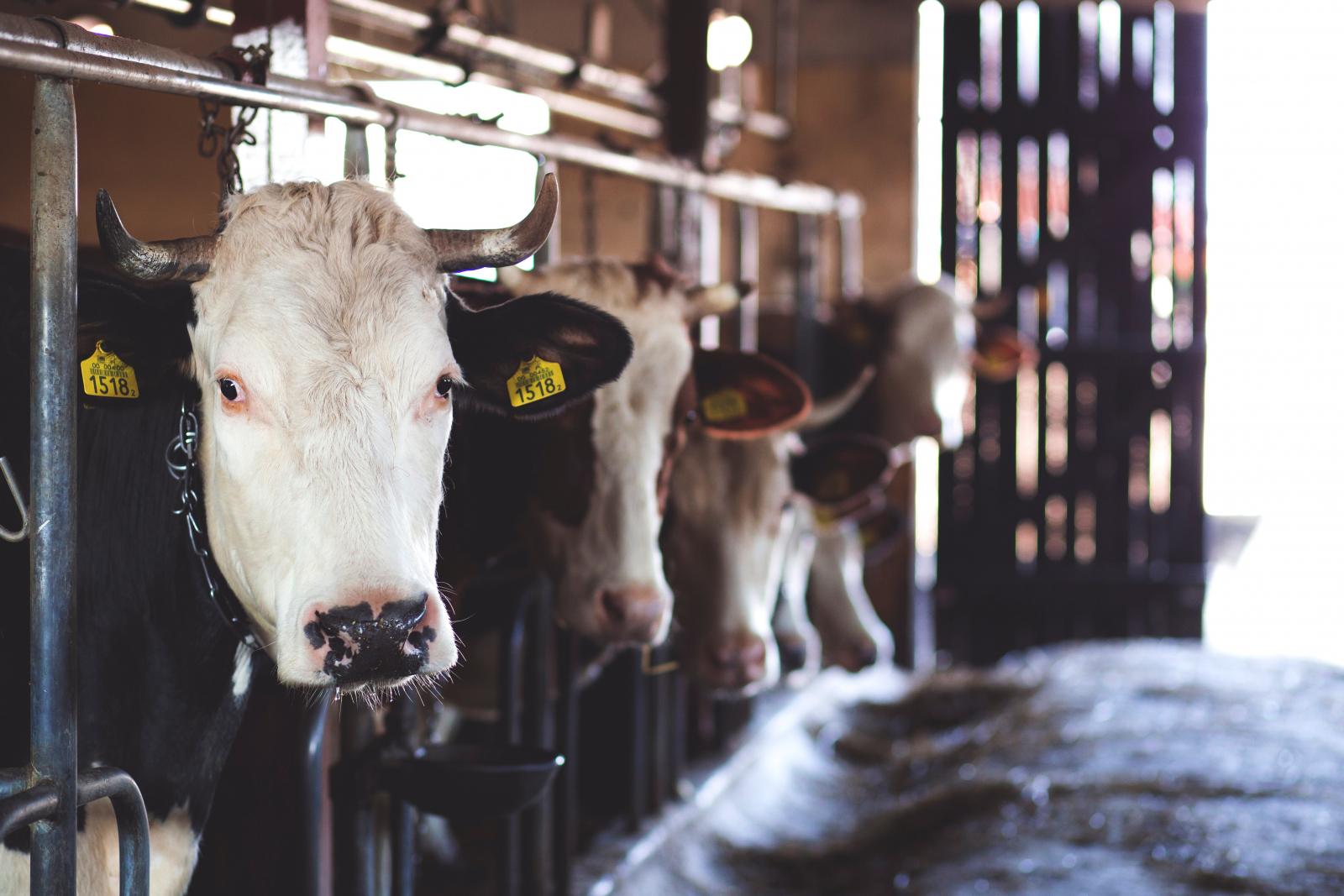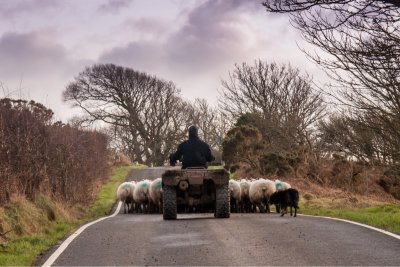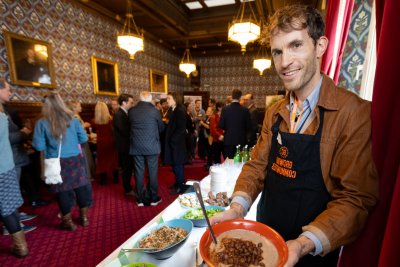 Cattle in a cowshed. Photo credit: pexels
Cattle in a cowshed. Photo credit: pexels

Shoppers could unknowingly eat hormone beef after Brexit
A new report by the Food Research Collaboration says there are signs that government ministers are willing to sacrifice food standards for Brexit deals.
The report entitled 'Hormone-treated beef: Should Britain accept it after Brexit?' says that there is a real risk that food standards may be sacrificed to win trade agreements with non-EU states such as the USA.
The report, co-authored by professors Tim Lang and Erik Millstone, shows that at least one of the hormones routinely used in US beef production has been judged to be a significant cancer risk by the EU. For the other five hormones used in the US, the available evidence is insufficient to show that their use is acceptably safe. While the EU had the power and resources to enforce its decision to reject hormone-treated beef, it is doubtful whether the UK, acting alone, would have similar leverage.
The report sets out the risks and the choices this case, and others like it, pose for the UK. The Government could ensure that our food safety standards remain aligned with prevailing EU rules, or raise them even higher. It could weaken them to reach trade agreements with powerful countries such as the USA. Or it could reduce them to the lowest-common-denominator level of the World Trade Organisation. Despite the rhetoric of free trade, the UK could easily become a ‘rule taker’ rather than a ‘rule maker’, in which case the UK must decide whose rules it will take: those of the EU (where it will no longer have a say in the development of standards), the USA or the WTO.
Erik Millstone, professor of science policy at the University of Sussex, said: “The idea that, once the UK leaves the EU, it will become a rule-maker, not a rule-taker, is illusory. Exporting to other countries requires accepting their standards. The choice is: Which rules to take - the EU’s, the USA’s or the World Trade Organisation’s? If UK products don’t match their standards, they won’t buy them. Trade requires shared rules and minimum standards. Food standards in the EU are far higher than those in the USA, and US standards are far higher than WTO standards. The UK should at least stick to EU; the only changes allowed should be to make food safer, never less safe.”
Hormone use is permitted in cattle rearing by US, Canadian, Mexican and Australian authorities but beef from hormone-treated cattle has been banned in the EU since the mid-1980s. Tim Lang, professor of food policy at City, University of London, said:
“The UK Government should ensure either that food standards remain fully aligned with EU standards, or that we adopt higher standards. There is a triple risk here: to health, to British beef farmers’ livelihoods, and to the UK’s ability to determine its own food safety standards. Hormone use is a test case for whether the UK seeks a more sustainable food supply. Hormone use would be a stupid step towards intensive beef feeding lots.”
The report recommends that:
- After Brexit, the UK Government should ensure either that food standards remain fully aligned with EU standards, or that we adopt higher standards. Food standards should not be weakened, especially not sacrificed to facilitate trade in undesirable and/or unsafe products.
- The UK consumer movement should strongly resist moves to weaken current levels of consumer protection as part of future trade deals.
- UK food and farming industries should publicly commit themselves to producing and selling only beef from cattle never treated with synthetic hormones.
- The retail industry (supermarket chains, independent stores and butchers) should advise their members, customers and MPs to tell the UK Government that they will not sell synthetic hormone-reared beef.
- The UK Government should explicitly acknowledge that any weakening of UK food standards, such as permitting the sale of hormone-reared beef, will result in barriers to UK food companies wishing to export their products to the EU’s Single Market.
- UK NGOs, researchers and public health professionals should maintain a vigilant watch on hormones policy and practice in the UK and EU, and other countries with which the UK trades, taking particular note of new scientific or policy signals emerging from official bodies and the ‘national competent authorities’.
The Food Research Collaboration are an initiative of the Centre for Food Policy, at City, University of London - who are a member of the Sustain alliance.
Find out more about the work Sustain is doing to secure a positive Brexit for food, farming and fishing, including how to tell your MP that you want a say in future trade deals.
Good Food Trade Campaign: Campaigning for good trade that benefits people and the planet at home and overseas.
Sustain
The Green House
244-254 Cambridge Heath Road
London E2 9DA
020 3559 6777
sustain@sustainweb.org
Sustain advocates food and agriculture policies and practices that enhance the health and welfare of people and animals, improve the working and living environment, promote equity and enrich society and culture.
© Sustain 2026
Registered charity (no. 1018643)
Data privacy & cookies
Icons by Icons8







